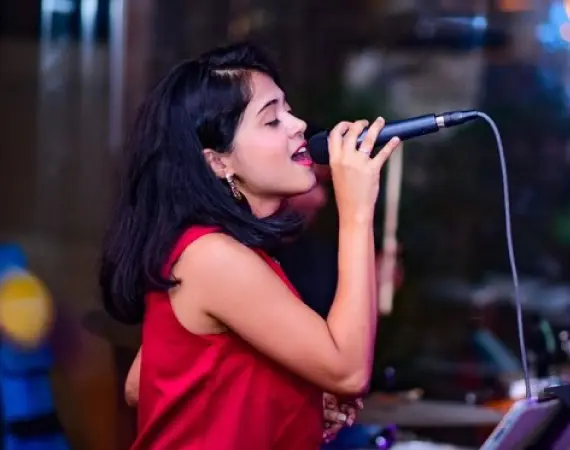
DAMINI HARMONY MUSIC CLASSES
Hindustani
classical vocal
Hindustani Classical Vocal
Hindustani Classical Vocal: Hindustani classical music is a subcontinent classical music tradition that emerged in the 12th century. Some of its key features include:
- Melodic music with no harmony
- Primarily vocal-centric
- Majorly performed on instruments like the veena, sitar, and sarod
- Uses a raga (melodic musical mode) and tala (rhythmic cycle)
- Divided into different gharanas based on the region and style
- No concept of harmony
- Originated in the northern part of the Indian subcontinent
- Also known as North Indian classical music or Bhartiya shastriya sangeet
Hindustani classical music is an important part of Indian culture and is performed across the country and worldwide. Many renowned Hindustani classical musicians have been awarded the Bharat Ratna, India’s highest civilian honor, for their contributions to the arts.
Course Duration - 3 Months, 6 Months, 12 Months.
There will be 2 days per week classes.
- Group and 1:1 Classes available.
- Group Class duration - 1 hour
- 1:1 Class duration - Per Session 45min.

DAMINI HARMONY MUSIC CLASSES
Benefits of Singing

Singing offers a multitude of benefits, including:
- Emotional expression and satisfaction
- A boosted immune system and reduced stress levels
- Improved sleep quality
- Enhanced respiratory health
- Increased confidence and self-esteem
- Improved memory and cognitive function


OUR CLASSROOM SESSIONS
Discover Our Classes!
Frequently Asked Question
Hindustani classical music is a tradition of Indian classical music that originated in the northern regions of India. It is characterized by its complex rhythms, improvisation, and a focus on ragas (melodic frameworks) and talas (rhythmic cycles). It includes both vocal and instrumental forms and has a rich history and diverse repertoire.
In a Hindustani classical vocal class, you will typically learn the following:
- Ragas: Melodic structures that form the basis of the music.
- Talas: Rhythmic cycles that provide the timing for the music.
- Alankars: Decorative musical phrases that enhance vocal technique.
- Bandish: Compositions in various ragas.
- Improvisation: Techniques for extemporizing within the framework of a raga.
- Voice Training: Techniques to improve vocal strength, range, and clarity.
No prior experience is necessary. Hindustani classical music welcomes beginners of all levels. Classes are often tailored to fit the student’s background and progress.
The time required to learn Hindustani classical music varies greatly depending on your goals, dedication, and practice. Mastery of this art form is a lifelong journey, but significant progress can be made within months or years with consistent practice.
Basic requirements include:
- A willingness to learn and practice regularly.
- A commitment to attend classes and practice at home.
- A basic understanding of musical notation or a willingness to learn it.
For vocal classes, you generally do not need an instrument. However, having a tanpura (a drone instrument) or a harmonium (if available) can be helpful for practice, though many classes provide these resources.
Regular practice is crucial. Aiming for at least 30 minutes to an hour each day is ideal, but consistency is more important than duration. Even short, regular practice sessions can lead to significant improvement over time.
Yes, many teachers offer online classes, which can be a flexible option for those who cannot attend in person. Ensure that your online instructor is experienced and provides feedback on your progress.

- C-25, First Floor, and, opposite Pushpanjali Medical Centre, adjacent to Union Bank Gate, Karkar Duma, Karkardooma, Anand Vihar, Delhi, 110092
- harmony.daminimusicclasses@gmail.com
- 91 -8826150277 | 8826780173
- Timings: 9:00am – 9:00pm
